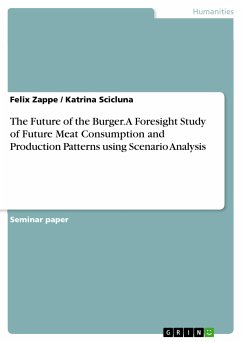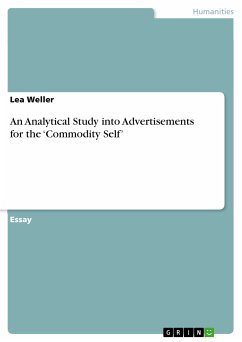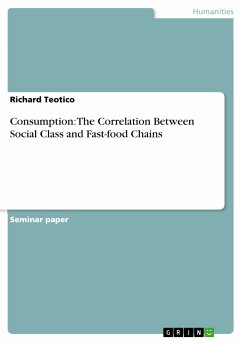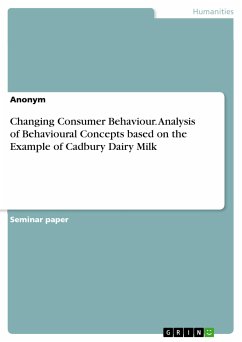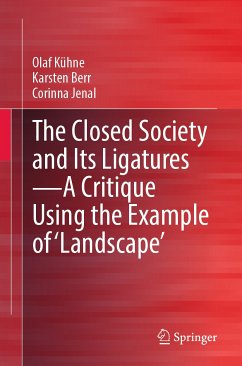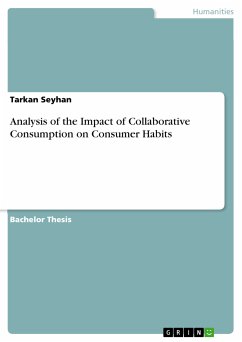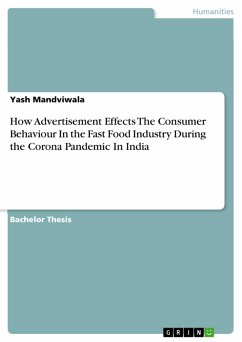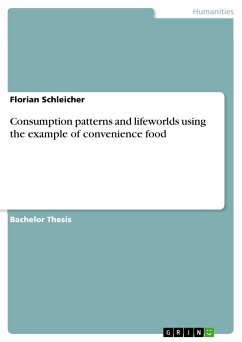
Consumption patterns and lifeworlds using the example of convenience food (eBook, PDF)
Versandkostenfrei!
Sofort per Download lieferbar
34,99 €
inkl. MwSt.
Weitere Ausgaben:

PAYBACK Punkte
0 °P sammeln!
Bachelor Thesis from the year 2010 in the subject Sociology - Consumption and Advertising, grade: 1,0, Free University of Bozen-Bolzano , language: English, abstract: In this Bachelor-thesis the consumption of convenience food of German households is analysed from the perspective of sociology of consumption. At first three theoretical conceptions are presented and discussed which serve as a basis for the empirical analysis that is undertaken later. The first conception is made up by Pierre Bourdieu's analysis of consumption behaviour of the French society in the 1960s. His book, Distinction: A...
Bachelor Thesis from the year 2010 in the subject Sociology - Consumption and Advertising, grade: 1,0, Free University of Bozen-Bolzano , language: English, abstract: In this Bachelor-thesis the consumption of convenience food of German households is analysed from the perspective of sociology of consumption. At first three theoretical conceptions are presented and discussed which serve as a basis for the empirical analysis that is undertaken later. The first conception is made up by Pierre Bourdieu's analysis of consumption behaviour of the French society in the 1960s. His book, Distinction: A Social Critique of Taste, shall be seen as the methodological starting point for the later empirical research. Following Bourdieu's findings, this led to the question whether substantial class differences in the consumption of convenience food are detectable in German society. George Ritzer's thesis, The McDonaldization of Society, and its key terms Efficiency, Calculability, Predictability, and Control further argue in favour for the choice of convenience food. The third theoretical pillar is the conception of lifeworld and its development in the field of philosophy and sociology. The empirical part uses an arrangement of German households in family lifeworlds, as it is also done by the German Society for Consumer Research. The analysed empirical data on purchasing behaviour was provided by the market research study Typology of Desires 2010. After analysis based on standing in society, phase of life, and household composition, "Students/ Apprentices" and "Unemployed/ Working Poor" resulted as the lifeworlds with the strongest consumption of convenience food. The initial question in the direction of a social determination of consumption of convenience food must be negated. Instead can be argued that consumption is strongly determined by the phase of life, and partially by social status in society and household composition.
Dieser Download kann aus rechtlichen Gründen nur mit Rechnungsadresse in A, B, BG, CY, CZ, D, DK, EW, E, FIN, F, GR, HR, H, IRL, I, LT, L, LR, M, NL, PL, P, R, S, SLO, SK ausgeliefert werden.




